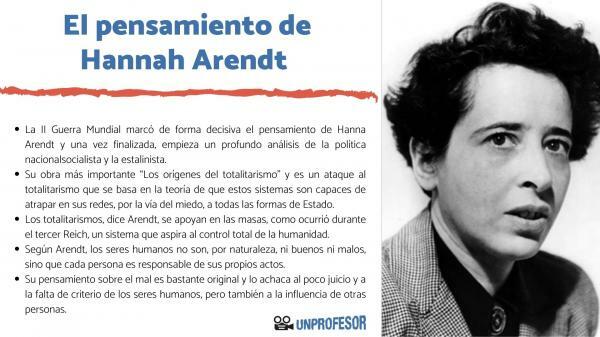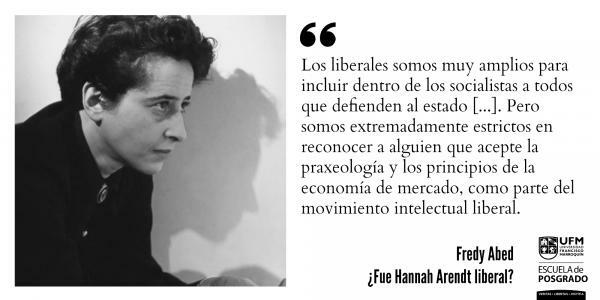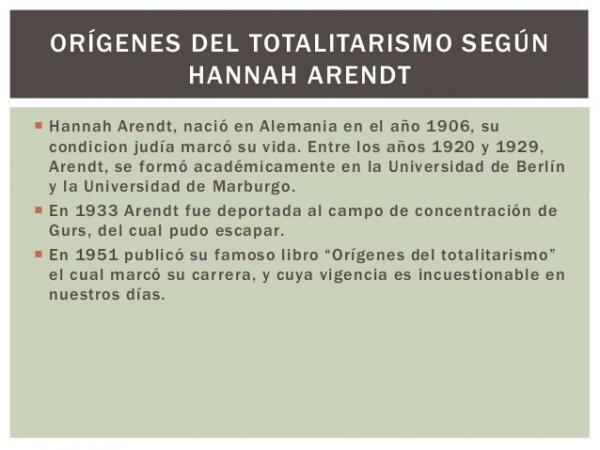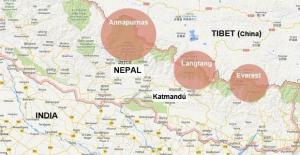Hannah ARENDT: Philosophical Thought

With this lesson from a TEACHER you will know the Hannah Arendt thought, she is a German, Jewish philosopher and politician, and a reference in 20th century philosophy. She flees Nazi Germany, withdrawing her nationality, and she takes refuge in the USA. and until the country gave him her nationality, Hannah, she had no homeland. She never considered herself a philosopher, but political theoristher, defending pluralism as the best policy to achieve the equality and freedom.
She always opted for the perspective of “inclusion of the other”, Stating that politics must be managed by capable people with decision-making capacity, in the face of to pragmatism, which set aside morality to only take into account the results, the consequences. These ideas led him to criticize forms of government such as representative democracy, instead of it, Arendt supported the direct democracy.
If you want to know more about the Hannah Arendt thought, keep reading this article by a TEACHER.
Index
- Who is Hannah Arendt? Summary on his life
- The Origins of Totalitarianism, one of Hannah Arendt's most important books
- Hannah Arendt's ideology
Who is Hannah Arendt? Summary about her life.
Hannah arendt she was a thinker who critical harshly the philosophy of Socrates, Plato, Aristotle, Immanuel Kant, Martin Heidegger and Karl Jaspers, even political theorists like Machiavelli and Montesquieu, but nowadays, her thought does not go unnoticed anywhere. philosophical debate.
Without a doubt, Hanna Arendt was a very special, different person and her political theory continues to be a reference to this day. Her ideas about totalitarianism, the right to political discussion, and her existentialist philosophymake this freethinker one of the most cited political philosophers in any debate.
Arendt approached the political discourse trying to “understand”E interpret literally all the documented information, biographies and literature, data, which she used for her theories.

Image: Francisco Marroquin University
The Origins of Totalitarianism, one of Hannah Arendt's most important books.
The World War II decisively marked the Hanna Arendt thought and once finished, she begins a deep analysis of National Socialist and Stalinist politics. For this, in addition to historical and biographical documents, she uses the data she personally collected.
Her most important work of hers "The origins of totalitarianism"Consists of three parts: Antisemitismus, Imperialismus and Totalitarismo or total dominion, saw the light in the year 1951, but it was expanding the work until 1966.
In this book she assures that historiography has failed to explain neither the holocaust, nor hatred towards the Jews, and this, she says, is because they analyze it from its causes. His attack on totalitarianism is based on the theory that these systems are capable of trapping in their nets, by way of the afraid, to all forms of State, transforming them at will, as they did the Nazism and the stalinism.
Interestingly, for Arendt neither the Italian fascism, neither him Francoism constituted totalitarian forms of government, because these dictatorships they only affect society from a political point of view, but the totalitarianisms they affect all dimensions of the human being.
“The fact that a form of totalitarian domination makes use of Marxism, and has apparently Developed directly from him, it is of course the most formidable position ever raised against Marx ".
Mass society
The totalitarianismssays Arendt, they lean on the masses, as it happened during the third Reich, a system that aspires to the total control of humanity. It was the poor people and policies that favored Nazism's rise to power. The populism it is the strategy of Imperialism.
Hannah Arendt is based on the work of Marcel Proust, Kant or Montesquieu, of her interpreting her ideas literally, which according to her, had not been observed as they deserve. Her way of defining totalitarianism served as the basis for the political theorists to develop arguments, which in many cases exceed those of Arendt.

Hannah Arendt's ideology.
According to Arendt, human beings are by nature neither good nor bad, but each person is responsable of his own acts. Every act of evil, she says, must be punished, since every individual is a mourner of his life and of his decisions. She also assures that people behave better when they have a pattern that directs their behavior.
In this sense, individuals living in countries that have a ConstitutionThey tend to submit more easily to the dominant morality. Non-democratic states limit free thought and critical capacity. Totalitarianisms, she affirms, reinterprets all ethical norms.
She criticizes the Kant's categorical imperative she calling him selfish and she proposes a community ethic based on negotiation. The human being is a plural being, and also has the ability to reinvent himself.
His thought about evil is quite original and attributes it to little judgment and the lack of judgment of human beings, but also the influence of other people. Because individuals come together to do evil, as well as anything else, and sometimes the actions of one person are controlled by others.
If you want to read more articles similar to Hannah Arendt: Philosophical Thought, we recommend that you enter our category of Philosophy.
Bibliography
Arendt, H. The origins of totalitarianism. Ed. Alliance. 2006



